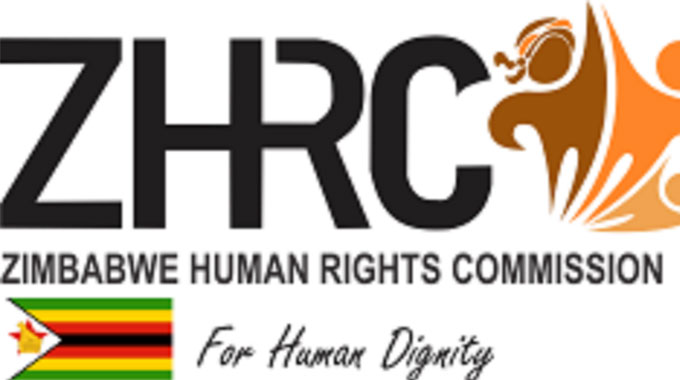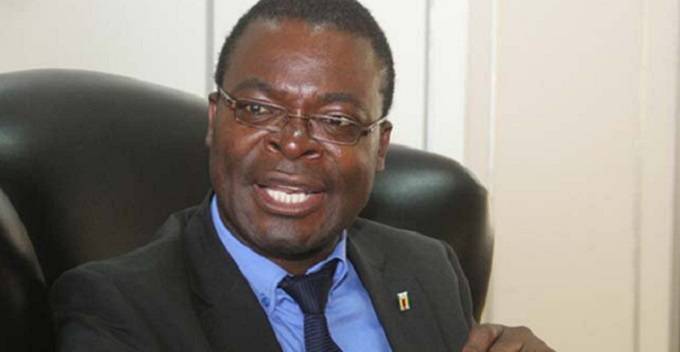ZHRC pledges to address lack of documentation issue

Mashudu Netsianda, Senior Reporter
THE Zimbabwe Human Rights Commission (ZHRC) has pledged to address the issue of lack of documentation of people, particularly in the Matabeleland region, by the end of 2020.
Speaking during the commencement of the inaugural public hearing on the National Inquiry on Access to Documentation in Zimbabwe in Bulawayo Metropolitan province yesterday, ZHRC chairperson Dr Elasto Mugwadi, said they were aware of the challenges faced in accessing national documents such as passports and birth certificates.
The Gukurahundi issue is one of the major problems in Matabeleland that has resulted in some people, especially orphans whose parents were killed during that time, failing to access essential national documents.
“As ZHRC, our mandate is to enforce the enjoyment of human rights, their promotion and protection and our target is to have no stateless people by end of 2020. No one should by end of 2020 be facing challenges of documentation. We also have been following the challenges in terms of issuance of passports,” said Dr Mugwadi.
“It is mandatory that the Registrar-General’s Office is represented at the highest national level as well as at provincial and district levels. Our working period is only three months and if nothing has been done, we will help approach the Registrar-General’s Office.”
Dr Mugwadi said lack of access to birth certificates by a significant part of the country’s population was an issue of great concern from a human rights perspective.
“A person who is not registered does not exist legally and therefore not a citizen of the country hence they run a substantial risk of falling outside the reach of Government’s protective measures towards them,” he said.
ZHRC is empowered in terms of section 243 (1) (j) of the Constitution to conduct national enquiries and research into issues relating to fundamental human rights, freedoms and social justice.
The national inquiry is focusing on five national documents; birth certificates, national identity cards, passports, death certificates and citizenship.
“The ZHRC is conducting this national inquiry as its own initiative and basing on the feedback from our human rights education, monitoring and complaints handling work over the past four years, it became apparent to the Commission that issues of access to national documents is a widespread challenge affecting a significant number of people in this country,” said Dr Mugwadi.
He said the main objectives of the national enquiry are to determine the root causes and factors that hinder easy access to national documents, review the effectiveness of existing laws, policies, procedures and institutions relating to access to national documents in the country and formulating recommendations and follow ups to address the barriers.
The Commission also wants to assess the impact of lack of documentation on the enjoyment of human rights that are guaranteed under the country’s constitution, international and regional laws.
Dr Mugwadi said they have also noted that due to the prevailing socio-economic challenges, a passport is not only used to facilitate freedom of movement as espoused in section 66 of the Constitution, but was also a source of livelihood.
He said some people were now surviving on cross border trading. Dr Mugwadi said if passports are not readily available, people have no choice but to cross borders illegally and in the process compromising their rights to life, personal security and human dignity as well as being vulnerable and susceptible to exploitation, abuse and modern forms of slavery and servitude.
ZHRC commissioners, who are in Bulawayo for the five-day hearings which are being held under the theme: “My identity, my right”, received oral evidence from witnesses selected during a mop up exercise carried out in the two Matabeleland provinces.
Giving her oral evidence, one of the witnesses narrated how she has been struggling to secure birth certificates for her two children, one of whom is a product of rape.
The teenage mother told the Commission that she was raped by her uncle when she was 13 years old and the offence was concealed by her relatives.
“I am an orphan and my uncle who was my guardian raped and impregnated me when I was 13 years old in Mberengwa.
“When I told my relatives about it, they simply didn’t believe me and the matter was therefore not reported to the police,” said.
She said soon after delivering, employees at the Registrar-General’s Office refused to issue her baby with a birth record, saying she was underage.
The teenager said when she later tried to apply for the birth certificate after revealing the circumstances that led to the birth of her child, she was told to first report to the police and then bring with her a case number.
She said she has been making efforts, including undergoing DNA tests, to acquire birth certificates for the child including the second one, to no avail.
Bulawayo provincial registrar Mrs Jane Peters, in her response said:
“In this case both children were born in the hospital and all we need is birth confirmation records and the identification of the mother regardless of the fact that when she gave birth, she didn’t use identification.
“In the case of the child that was born in Mberengwa, I don’t understand when the officers there say they couldn’t give her the birth record because she was underage yet she is the person that gave birth.”
Dr Mugwadi said the Commission would also strive to ensure that some of the pertinent issues raised during public hearings are immediately addressed.
“We are going to be following up, especially on all those who would have given their oral evidence before this enquiry to see what would have been done,” he said. — @mashnets.











Comments